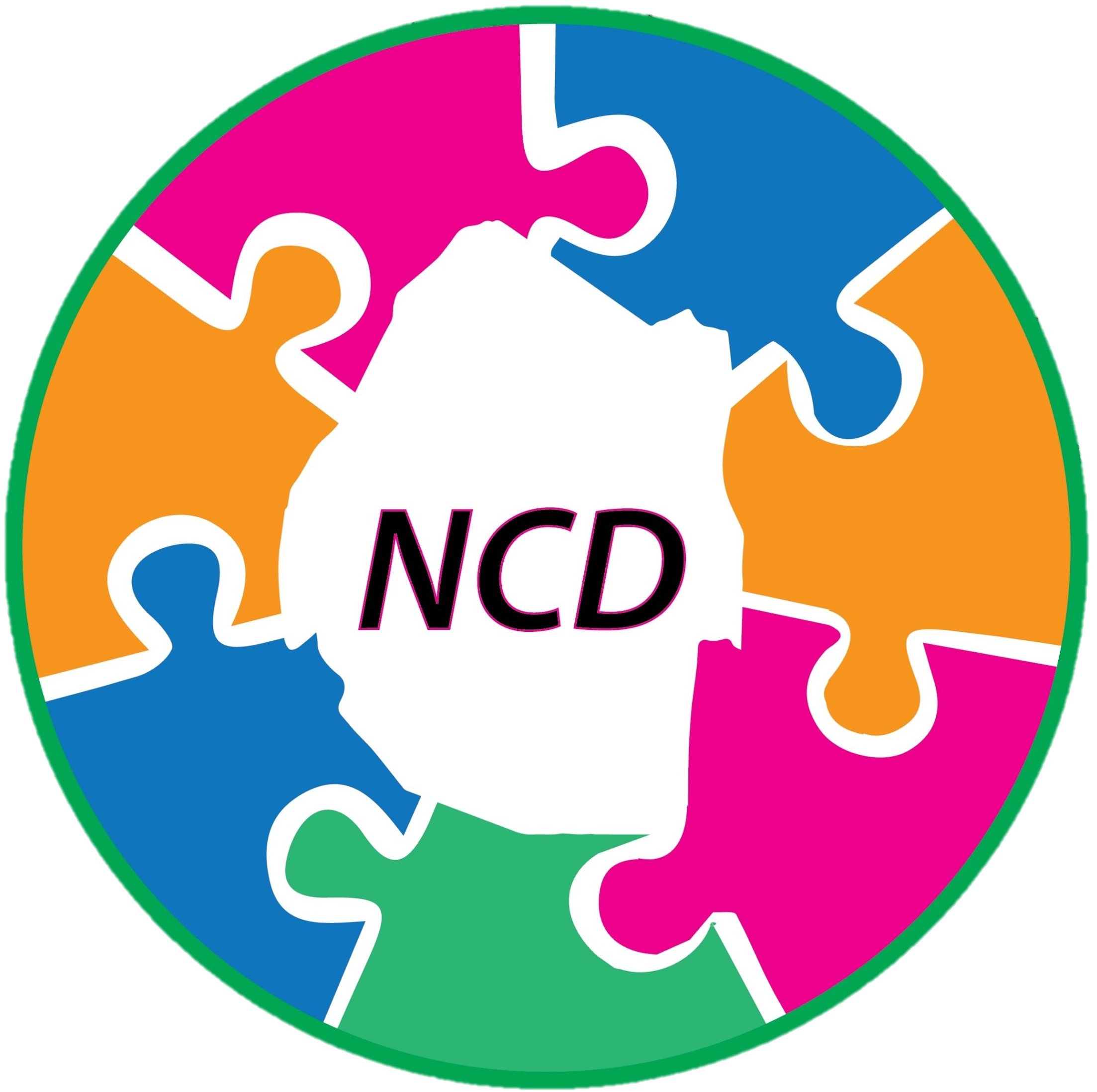Our partners


Founded in 1386, Heidelberg University is Germany’s oldest university. On the 2017 Shanghai Academic Ranking of World Universities, Heidelberg ranks 1st nationally, 12th in Europe, and 42nd in the world. Heidelberg University Hospital (UKHD) boast Germany’s highest rank Medical School, with more than 40 specialized clinical departments and 11 institutes, is one of the leading medical centers in Europe and is at the forefront of health sciences for the benefit of all. The Medical Faculty has prepared itself for the challenges of the 21st century by establishing central scientific institutions, of focus points in research, and of internal promotion and support of innovative research groups. UKHD is a key partner in many large-scale consortia-based research programs including, 20 Horizon 2020 projects such as ZIKAlliance[1], ADVOCATE[2], CoCA[3], and MESI-STRAT[4]. These multinational and multi-disciplinary research consortia require substantial governance and management structures to support the implementation of research projects. The WHO-PEN@Scale project will leverage the unique institutional strengths of UKHD to successfully meet deliverables and milestones. UKHD has developed transparent processes for involving stakeholders, communication offices, and is committed to the policy of global access to ensure the widest possible dissemination and impact of scientific results. UKHD has a dedicated EU liaison officer with expertise in Horizon 2020 projects to support the project and communication with the EC.
Founded in 1962, the Institute of Public Health within UKHD is Germany’s largest and oldest institute for global public health research. The institute boasts a faculty of >50 scientists, working mostly in Africa and Asia. The institute has projects in >30 countries. It has a particular focus on identifying need for interventions and establishing the effectiveness and impact of global health interventions and health policies to fight infectious and non-infectious diseases in resource-poor countries. For this work, it uses quasi-experimental approaches in large population-based and clinical cohorts, as well as randomized controlled trials nested within large ongoing cohort studies. Another focus are methodological innovations for applied global health research, including novel uses of experimental, quasi-experimental and econometric methods. A major strength of the institute is the transdisciplinary integration of methods from health research, economics, psychology, ethics, jurisprudence, and the political sciences to address some of the most pressing global health and human development needs.
[1] ZIKAlliance establishes a global alliance for Zika virus control and prevention (https://zikalliance.tghn.org/).
[2] ADVOCATE works on oral care (http://advocateoralhealth.com/).
[3] CoCA works on comorbid conditions of attention deficit / hyperactivity disorder (https://coca-project.eu/).
[4] MESI-STRAT works on breast cancer patient stratification (http://www.mesi-strat.eu/).
UKHD will lead two work packages: WP2, by assessing the impact of WHO-PEN@Scale on diabetes and hypertension control; and WP 9, by leading the overall management and coordination of the project. Investigators from UKHD will also be involved in other work packages to support consortium partners in implementing their WPs. PIs will be involved in multiple WPs to share best practices.


The Heidelberg Institute of Global Health (HIGH) is one of the research institutes at the Faculty of Medicine at Heidelberg University, Germany’s oldest university.
Through its research, the institute aims to contribute to improving the health of some of the sickest and poorest populations worldwide, especially in Africa and Asia.


The Swiss Tropical and Public Health Institute (Swiss TPH) is Switzerland’s leading public and global health institution. Associated with the University of Basel, Swiss TPH combines research, teaching and service provision at the local, national and international level. More than 700 employees and students from over 60 countries work at Swiss TPH in the fields of infectious diseases, non-communicable diseases, society and health, environment and health as well as health systems and interventions.
Founded in 1943, Swiss TPH is a public non-commercial organization partially supported by the Swiss Federal Government and the Canton of Basel, and more than two-thirds funded through competitive bidding for projects and research grants. The institute’s mandate is to contribute to the improvement of population health internationally and nationally through excellence in research, services, teaching and training.
The Swiss TPH is structured into five departments, each with an international reputation recognizing quality achievements in medical parasitology and infection biology, immunology and genetics, epidemiology and public health, service provision for international health, health economics and systems planning, medicines research and clinical trials, and medical services and diagnostics. The institute combines scientific knowledge and practical expertise and builds on the approach of innovation, validation and application.
The research activities of the institute focus on interdisciplinary approaches and national and international partnerships. Swiss TPH researchers are involved in a network of well-established partnerships in both, low- and middle-income countries and emerging economies in Africa, Asia and South America, as well as in Europe and North America. Furthermore, the institute has extensive world leading track in combining field, laboratory, clinical, public health, and health systems research modules to advance a long-standing commitment and agenda for generating productive synergies in research, services and teaching.
At present over 700 staff members are employed by Swiss TPH, about half of whom are professional researchers, with many working abroad. The Swiss TPH is positioned as an associated institute of the University of Basel, complemented by its many international academic linkages and participation in research and training networks. As such, the Swiss TPH provides a thriving environment for high level scientists to perform research in a broad range of international health topics. The institute holds a long-standing record in contributing to EU funded projects, currently with some 20 on-going projects running under the FP7 framework and six under Horizon 2020.
SwissTPH will lead WP3. As such, it will plan, oversee data collection (implemented by CHAI), and analyse the following components of the WHO-PEN@Scale project: i) bottom-up costing of the WHO-PEN package (including a time-and-motion study at primary healthcare facilities) as implemented in study arms 2, 3, and 4; ii) questionnaire design and data analysis to ascertain the causal impact of WHO-PEN on household survey participants’ economic outcomes (including healthcare expenditures); iii) comprehensive cost-effectiveness analysis from the perspective of the Swazi government, including modeling of WHO-PEN’s cost-effectiveness over time horizons beyond the study period; and iv) analyse data from the household surveys to determine the impact of WHO-PEN on health equity


The University of eSwatini, the national (public) university of eSwatini, is an institution of higher learning established through an Act of Parliament in 1982. Its tripartite core mandates include teaching, research and community service. To meet the mandate the University collaborates with government and private sector as well as other universities in and outside eSwatini particularly in research and skills exchange. Headed by the university Chancellor (His Majesty King Mswati III), the university includes seven faculties with over 300 staff and 5.000 students. The university also publishes the UNESWA Research Journal of Agriculture, Science and Technology and the UNESWA Research Journal.
The Faculty of Health Sciences’s specific focus is on healthcare provision in a variety of clinical settings, particularly in relation to health promotion illness, injury and disability prevention, causes and treatment, of disease and health restoration. It embraces the philosophy of quality healthcare that is appropriate, affordable and culture sensitive through teaching and research. Housed within the Faculty of Health Sciences, sits the Department of Health Nursing Science, which focuses on healthcare provision to diverse societies, with particular attention to the eSwatini context, in the prevention of diseases and injuries promotion, maintenance and restoration of health of individuals, families and communities. This includes the planning for interventions, implementation, and evaluation of health outcomes.
Lead WP4 – Acceptability and implementation: (1) Conduct a questionnaire-based survey of a random sample of (1500) diabetes patients regarding experiences of decentralized care selected from the facilities in the intervention arms; (2) Conduct in-depth interviews with a diversity sub-sample of (50) diabetes patients regarding their experiences of the decentralized care model; (3) Conduct in-depth interviews with a diversity sample of (90) health care providers implementing the care model; (4) Conduct in-depth interviews with (5-10) ministry of health officials/policy makers regarding implementation challenges and bottle-necks; (5) Conduct structured observations of the implementing task-shifting in health facilities.
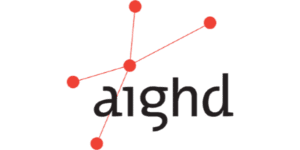

The Amsterdam Institute for Global Health and Development Foundation (AIGHD) is an international research institute with its main office in Amsterdam, The Netherlands. AIGHD was specifically established by the Academic Medical Center (AMC) to carry out and manage global health-related projects particularly in an international context. AIGHD is a dynamic research and education institute that thrives on intense collaboration among experts from multiple disciplines. AIGHD unites biomedical researchers from AMC, social scientists and economists from the University of Amsterdam (UvA) and the VU University Amsterdam. With its interdisciplinary and translational approach, AIGHD addresses the most critical medical, social, economic and political challenges in global health and development that cut across national and political borders. AIGHD has received close to €19M of support from the European Commission (FP7, EDCTP & H2020), co-ordinating seven consortia and participating in a further six.
Participant WP 4: Implementation: This work package assesses acceptability and implementation of the decentralized care approach by a series of questionnaire-based surveys, in-depth interviews in selected patient groups selected from facilities in the intervention arms, as well as healthcare providers, policymakers (Ministry of Health). The qualitative research methods are supplemented by the analysis of structured observations of the implementation of care decentralisation in selected health facilities. In this WP, AIGHD will provide scientific support to UneSwa.
Lead WP 5: Syndemics: Activities in this work package measure the prevalence the syndemic impact of diabetes, hypertension, and HIV at a population level. It combines additional data collection from participants with neither diabetes, nor hypertension, with the data derived from the household survey at the end of the first phase on the trial (participants with diabetes and/or hypertension). through a household survey. AIGHD will identify the main drivers of the syndemics through structural equation modelling. AIGHD will also support the collection of in-depth information on contextual factors in the life-course of participants that are associated with comorbidity at an individual level, though qualitative research methods. Specifically, AIGHD will contribute to the design, supervision and analysis of in-depth life-history interviews, and conduct qualitative comparative analysis of the resulting data.


The University of Goettingen was founded in 1737 and has a long-standing tradition in academic excellence. Its Department of Economics is among the largest in Germany and has a particularly strong profile in development economics, behaviour and compliance research, as well as in the analysis of new forms of communication and interaction processes facilitated through advancements in digital technologies. Based on this strategic focus, the University of Goettingen offers important synergies in the study of the transformative potential of information and communication technologies in the context of health system innovations in a low-income-country setting.
The University of Goettingen further benefits from a strong interdisciplinary cooperation within and across departments in both formal and informal settings. Important examples are the ‘Centre for European, Governance, and Economic Development Research’ (cege), the ‘Centre for Modern Studies’, the ‘Centre for Statistics’ as well as the research centre ‘Poverty, Equity and Growth in Developing Countries’. Moreover, the ‘Goettingen International Health Network’ brings together researchers from the fields of medicine, economics, social sciences, agriculture, biology and geography to facilitate a holistic research approach in the analysis of health problems, such as diabetes, making Goettingen one of the leading locations for Global Health research in Germany.
The University of Goettingen team will lead WP 6. In this context, it will plan, conduct and monitor the ICT intervention that will form an integral part of the last treatment arm. Its main tasks are to investigate issues related to ICT-solution design, technology acceptance, usability and decision support.
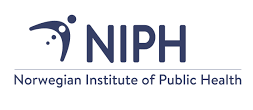

Producing systematic reviews, and developing methods for systematic reviews and enhancing evidence uptake in the health services, are key areas of activity of the Norwegian Institute of Public Health’s (NIPH) Division for Health Services. NIPH has also a strong programme of work in the area of global health and is the base for the Cochrane Effective Practice and Organisation of Care (EPOC) Group’s satellite focusing on health systems reviews for low- and middle-income settings (http://epoc.cochrane.org/norwegian-satellite). NIPH staff are considered world leaders in the area of methods for systematic reviews on health systems questions, including reviews of the effectiveness of health systems interventions and qualitative evidence syntheses on how these interventions work. We have also led work to develop tools to support the use of research evidence in health systems decisions in low income and other settings, including through evidence-to-decision frameworks and evidence-informed policy briefs. The NIPH works with a wide range of partners in both the South and the North.
Based in the NIPH is the Centre for Informed Health Choices. The Centre contributes to informed health choices by developing and evaluating interventions that, firstly, make relevant research more available and understandable and, secondly, improve decision makers’ ability to assess health-related claims. The Centre has a strong track record in producing high impact academic outputs, from systematic reviews of interventions aimed at improving the use of and access to research findings, to primary research on qualitative and quantitative aspects of the use of research findings in decision making processes. Centre staff are heavily involved in the development, design and evaluation of evidence-to-decision frameworks – that is, tools to facilitate systematic and transparent processes leading to well informed health decisions. Staff of the Centre have led a number of high profile projects internationally, including the first four versions of Cochrane’s Handbook for preparing and maintaining systematic reviews; guides for using systematic reviews; publications on specific topics, such as publication bias, risk of bias and subgroup analysis; a series of 28 guides for authors of health system reviews (http://epoc.cochrane.org/resources/epoc-resources-review-authors); and the development and evaluation of summaries of findings for systematic reviews and structured summaries for consumers and for policymakers.
The Global Health Cluster within NIPH has coordinated or had a key partner role in a number of large-scale multi-country consortia-based research programmes, including the following EU-funded programmes: SUPPORT (Supporting the UPtake of POlicy-relevant Reviews and Trials); SURE (Supporting the Use of Research Evidence); and DECIDE, which aimed to improve the way guideline information is communicated to health professionals, patients and the public, policymakers and others. We have also led a number of large-scale multi-country consortia-based research programmes funded by the Research Council of Norway, including the COMMVAC (Communicate to Vaccinate) projects (www.commvac.com) and the Informed Health Choices project (www.informedhealthchoices.org), which aims to empower people to make informed choices around health and other issues.
NIPH will lead WP7, focusing on synthesising global evidence to support the scale up of WHO-PEN, and will co-lead WP8 with CHAI. This work package will focus on engaging with decision makers and other stakeholders and groups to disseminate the findings of the project. NIPH will also contribute to discussions around the other project work packages.
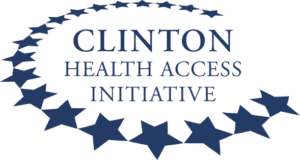

The Clinton Health Access Initiative (CHAI) is a global health organization committed to saving lives and reducing the burden of disease in low-and middle-income countries, while strengthening the capabilities of governments and the private sector in those countries to create and sustain high-quality health systems that can succeed without our assistance.
CHAI first began work in eSwatini in 2004 through a Memorandum of Agreement which helped eSwatini increase access to more affordable commodities and initiated mutually agreed technical assistance. CHAI’s work expanded in 2007 through managing the donation of paediatric commodities to the Government of eSwatini from UNITAID. CHAI eSwatini officially established an office in 2009 and has been providing technical assistance in a variety of the Government’s public health priority areas. Current work includes sustainable health financing, malaria elimination, improving access/uptake to high-quality and affordable medicines and laboratory diagnostics and implementing a Pre-Exposure Prophylaxis (PrEP) study.
CHAI eSwatini has a proven track record of quickly and efficiently implementing projects and seeing projects to scale. In 2014, CHAI began the MaxART Early Access to ART for All study in eSwatini, alongside consortium partners Heidelberg University and AIGHD, to demonstrate the clinical and economic benefits of beginning early ART. Prior to study completion, based on the evidence generated by the study, the country removed the minimum threshold for CD4 count to initiate ART. Lessons learned from the study also informed the national communication strategy and improved budgeting and quantification for HIV treatment.
CHAI eSwatini is also a technical partner to the Ministry of Health in the reform and scale-up of NCD service delivery, of which the decentralization of services for hypertension and diabetes outlined in this grant proposal, is an important component.
CHAI eSwatini is extremely well placed to lead the on-the-ground implementation of this project given the organizations embedded and trusted presence in eSwatini, and the organisation’s role as the primary partner to the Ministry of Health in the commodity forecasting, budgeting and task-shifting that will be necessary for the health system to be ready for decentralized service delivery in 2019.
CHAI is the supported partner to the Ministry of Health as they make the necessary preparations for NCD service decentralization in advance of this grant, including support to the Ministry to forecast, cost and advocate for the equipment, HR, pharmaceutical and diagnostic commodities necessary to enable decentralization of service delivery for hypertension and diabetes.
During the grant period, CHAI will be the main on-the-ground implementing partner for the monitoring, evaluation and data collection activities within the grant, specifically; the household surveys in WP2, the economic assessments in WP3 and the qualitative syndemic assessments in WP5. CHAI will also serve as the main conduit for the communication and dissemination of knowledge products developed under WP8 to senior health policy actors in the region, leveraging CHAI’s trusted relationship with Ministries of Health in Southern Africa.
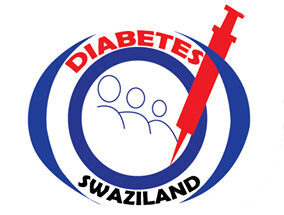

Diabetes Swaziland is a registered independent organisation in eSwatini, and is a member of the International Diabetes Federation (IDF).
Diabetes Swaziland is the only patient advocacy organisation for NCDs in eSwatini, and plays a leading advocacy role in the country through lobbying for pro-diabetic laws, policies and practices across government, the health sector and communities. In addition to supporting and mobilising diabetics to advocate for their rights, Diabetes Swaziland conducts domestic and international fundraising in support of public screening campaigns, the development of locally specific education materials and the training of local health care providers on holistic care of people living with diabetes.
The organisation has established, coordinates and supports 95 peer support groups for diabetics across all regions eSwatini, which brings diabetics together in local communities for mutual support and assistance in a range of areas; from mobilising for their rights to health care, to sharing best practices on treatment adherence. These support groups that offer the largest community-level interface with NCD patients in the country.
Diabetes Swaziland has a strong track record of mobilising support for increased access to services for diabetics, including as a key partner of the Ministry of Health and implementing partners during the Lubombo Feasibility Pilot where the organization represented the voice of diabetics on the national coordinating NCD Decentralisation Technical Working Group, as well as trained and capacitated diabetics involved in the Pilot to capture and relay their lived-experiences of diabetes and chronic disease through the medium of ‘digital stories’.
EBH will be the lead partner on the dissemination and communication activities under the grant as described in Work package 8.
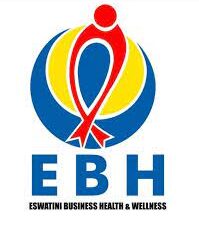

EBH is a non-governmental organisation established by the Federation of eSwatini Employers and Chamber of Commerce (FSE &CC). This started as a desk of the Federation in 2001 assisting employers in the response to HIV. In 2008 the desk was relaunched and registered as an independent non-profit organisation.
Although EBH was created with the aim of coordinating the response of eSwatini’s private sector to the HIV emergency, with the ongoing demographic and epidemiological shifts underway in country, the organization is now strategically refocussing to play a bigger role in coordinating worker and employee response to diseases beyond the HIV & AIDS umbrella, including diabetes and hypertension. EBH has consulted widely with the constituent organizations of the FSE&CC over the past 12 months and has agreed a strategic framework for improvement of the private sector’s response to workplace wellness issues informed by documented previous experiences during the control phase of the HIV epidemics.
EBH has a staff complement of 8 competent staff members who have experience in Public Health and Health care interventions. The team comprise of the Chief Executive Officer, Programs Officer, M&E Officer, Finance Officer, Office Administrator , Wellness Officer: Clinical services, Wellness Officer: Trainings, and a fleet operator. All of the above listed staff members are on specified contracts. EBH further has a pool of 10 part time staff (Nurses, nursing assistants and psychologist) that assist in programs implementation (health education and trainings, and health screening services when required).
EBH also coordinates the 1,500 Wellness Officers of its constituent employer organizations in eSwatini, and has expanded their remit from HIV and STI screening and prevention messaging, to a more expansive service list of cardiovascular risk reduction, blood pressure, blood glucose and cholesterol screening. EBH’s involvement with this important Horizon 2020 grant fits well within the strategic framework for our response to NCDs, and augments the existing work underway in response to the epidemic.
EBH has strong and productive relationships with stakeholders across the public sector in eSwatini and the Southern African region, including the Ministry of Labour and Social Security, Ministry of Health, Ministry of Commerce of eSwatini and their counterparts in neighbouring countries. Similarly the organization has strong links with the private sector across the region, including formal partnerships with South African Business Coalition on Health & AIDS (SABCOHA), Pan African Business Coalition on Health & AIDS (PABC) and AIDS Right Alliance of Southern Africa (ARASA).
EBH will be the lead partner on the dissemination and communication activities under the grant as described in Work package 8.
